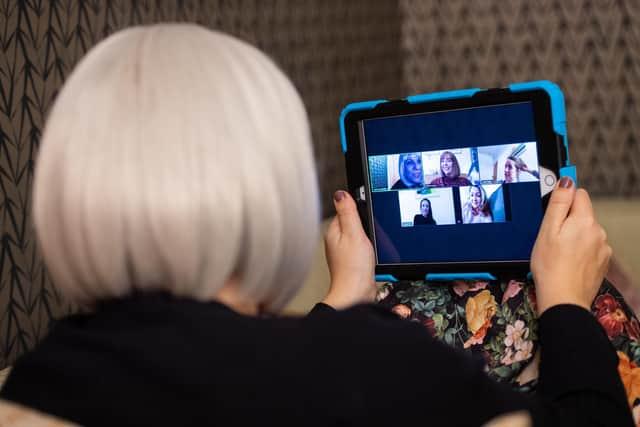Scott Clair: Mediation could become the ‘new normal’


In the ongoing situation, a number of mediators are offering their services at arm’s-length, for example by telephone and video-conferencing. Modern technology and specifically audio-visual conferencing facilities such as Zoom and Microsoft Teams even allow for private breakout sessions where the mediator can “visit” individual parties, together with the option to bring everyone back together in plenary session.
Zoom, for instance, allows for up to 50 separate sessions at any one time, where the meeting host can toggle easily between and join breakout sessions – and move the participants between rooms, if required.
Advertisement
Hide AdAdvertisement
Hide AdLitigation is often a business of winners and losers. It can go on for a long time – at not insignificant expense and personal cost to the parties. The courts rightly apply the law to the facts and arbitrate accordingly. Cognisance is not taken of various extraneous factors or personal feelings and so, at times, this can result in an outcome that might be legally correct, but one that can, to many clients, feel manifestly unjust. I well remember one particular judge telling an unrepresented party what was at hand was “a question of law, not of justice” and that they were not necessarily always the same thing!


Often clients will tell you that they are not litigating for money or a court order, but for a vindication of their position and sometimes just a desire to have their voice heard, where it may not otherwise be due, perhaps due to power imbalances between the parties, whether perceived or actual, for example.
Enter mediation. Mediation is a dynamic, structured, interactive process where an impartial third party assists disputing parties in resolving their conflict through the use of specialised forms of communication and negotiation techniques.
An experienced mediator will come to the dispute, just as a judge would, without preconception or prejudice, but is not there to adjudicate the dispute. Rather, he/she is there by mutual consent to assist the parties work towards a resolution.
He/she does so by a variety of innovative techniques designed, amongst other things, to address perceived power imbalances, focus issues in dispute and help the parties to gain a better understanding of the other’s point of view and priorities in getting a resolution. They can assist parties with an understanding of their best and worst alternatives to a negotiated agreement – and this can often be very sobering!
Crucially, it is also important to highlight that mediation has a high success rate and is frankly almost invariably quicker and more cost-efficient than litigating a dispute to conclusion.
In my view, clients almost always find mediation a cathartic process. The benefit of getting the parties themselves together in a room (perhaps a virtual room), albeit with their legal representatives, but each supported by the mediator, cannot be overstated. They are able, if they wish, to address each other directly, get what they have been bottling up off their chest and see the colour of each other’s eyes, rather than be kept at arm’s-length and communicate only via their solicitors. Possibly one particular benefit of mediating remotely will be that the lack of physical presence of the other party in the same room will alleviate some degree of apprehension around the process of coming face to face.
Creative solutions can be proposed and facilitated, often having the effect of dealing with and putting to bed a number of issues additional and peripheral to the central dispute at hand. These are all things that would be much harder to achieve as part of an ordinary court process. On a slightly cautionary note, parties should approach the mediation constructively and be prepared to compromise.
Advertisement
Hide AdAdvertisement
Hide AdAt present, we do not yet know how long the courts are likely to be operating in a considerably reduced way. In the absence of having litigation as an option to resolve “non-urgent” – but nonetheless important – disputes, mediation may well prove to be the “new normal”.
Scott Clair is an Associate with Balfour+Manson